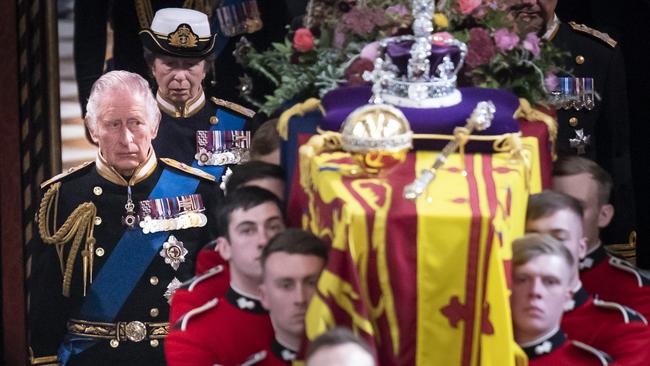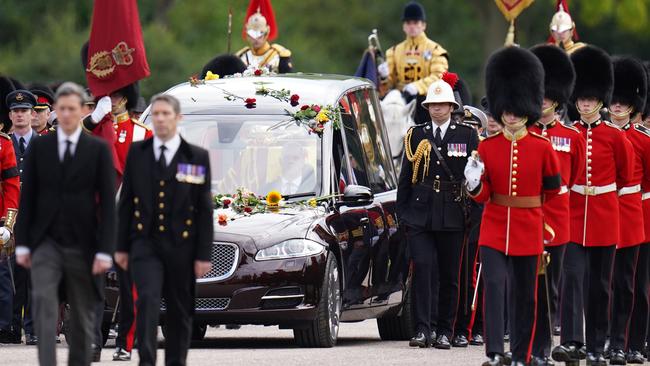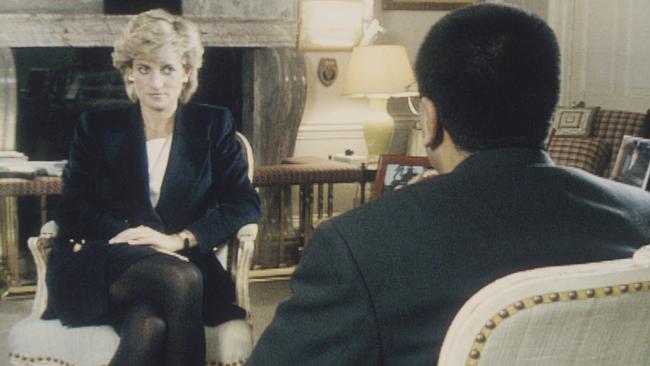BBC has no right to assume we’re monarchists

Time to spoil it. And please don’t imagine that I didn’t expect the passing of Her Majesty to be covered in the way it was. In the early 1990s, in one of my least successful incarnations, I found myself temporarily in charge of reviewing the BBC’s royal obituaries. No one then was believed to be about to die and so the urgency wasn’t there. I did the obvious and started with the Queen Mother.
The “obit” had been made a couple of decades earlier and was about an hour long. The tone was solemn, obsequious and without the slightest hint of any of the controversies that had marked the Queen Mother’s life.
By the time we got to the 1930s the Queen Mother was visiting Canada and there was a black and white cinema news clip of her meeting some native Americans who had, according to the newsreader, “come to greet the Great White Mother”. We edited that bit out.

I was reminded of it all this week when, on Monday, we reported that a BBC documentary about Prince Charles becoming king, commissioned in 2010 and planned for transmission three days after the Queen’s death, had been moved from prime time to a much less prominent slot on the iPlayer. The filmmaker thought that this last-minute decision was due to a sudden fit of the vapours, with the corporation worried that any exploration of themes such as whether a monarch would meddle in public affairs might be seen as somehow disrespectful.
You may remember that a few weeks ago the veteran and dynastic national event broadcaster David Dimbleby revealed the lengths to which the Palace had gone to get exactly the coverage of the funeral and the mourning that it wanted. During the live coverage, he said, emails would arrive from the Palace “almost simultaneously” specifying which shots must not be used in any subsequent news coverage of the event. It was then he realised that although the licence fee was paying for much of the coverage, the copyright belonged to the Windsors.
This led him to reflect on other aspects of the relationship between the royals and the BBC. The corporation, he said, “would not go near things like the power that the Palace has to change taxation legislation”. It was and always had been scared of negative reaction from viewers if it were to be in any way critical.

Dimbleby’s two great exceptions where the BBC “have actually probed the way things work” were the Newsnight interview with Prince Andrew and the famous/infamous 1995 Panorama interview with Princess Diana.
The latter, of course, will not be shown again on the BBC following revelations about how it was procured by the interviewer, Martin Bashir. This strange self-denying ordinance is undermined by the fact that extended excerpts can be found in other documentaries and on YouTube, and dramatised verbatim sequences will appear in the new series of the Netflix drama The Crown. And despite the fact that none of it is untrue and that it is one of the most compelling interviews ever broadcast.
Horribly embarrassed by the Bashir affair, the BBC didn’t choose to contest in any way Prince William’s assertions that but for Bashir Diana might not have chosen to speak as she did, or that the interview led indirectly to her death. Yet, though understandable, neither proposition is true. In 1995, it can be argued, Diana was determined to say the things she said on television, and the only question was to whom she would say them.
There is, then, a very good case for the BBC to withdraw its ban on showing this historic interview but, when screening it, to remind viewers of just how it was obtained. In much the same way that Dame Judi Dench, writing to The Times recently, suggested Netflix remind viewers that The Crown is a mixture of fact and fiction. Personally, I agree with Dame Judi. Which must be the safest sentence I’ve ever written.
Now let’s plunge back into danger. First, a declaration of interest: I present a weekly BBC Radio 4 program and esteem the institution and the people who work for it. Second, a declaration of position: I am neither a monarchist nor a republican. But, as we saw this autumn, when a queen departed and a king arrived, a constitutional monarchy works pretty well for this country.
So, though I am no longer the iconoclast of my youth, I still think that our institutions need to be questioned and examined. Formally the BBC agrees. Its journalistic guidelines concerning impartiality are well worth a google. One key sentence reads thus: “We must always scrutinise arguments, question consensus and hold power to account with consistency and due impartiality.”
I think the BBC generally does this (though, of course, being itself a powerful organisation it too requires scrutiny). Except when it touches on royalty: when the matter is of princes and duchesses it opts for the cringe. It is one thing to strike an appropriate tone for coverage of a ceremony; a state funeral is solemn and de mortuis nil nisi bonum; a state wedding is joyous – fairytale princes and so on. It is quite another matter for news programs and news sequences to conscript the viewer and listener into the ranks of fervent royalists; constantly to tell citizens what they are supposed to be thinking and feeling, while presenting a version of the truth which is completely sanitised and stripped of any awkward reality.
For example, is it really “balanced” and “impartial” to visit Northern Ireland and discover only people who thought that the royal family were wonderful? To fail, in the period around the accession, to interview a single republican who might argue that things should be done differently? To characterise any demonstration, however tiny, of a contrary view as being eccentric and illegitimate? To somehow forget that the recent history of the monarchy had had some decidedly problematic moments?
It’s an irony of course that those who complain most loudly about the BBC’s lack of impartiality would have had no problem with that period when it, in effect, became a propagandistic state broadcaster. And perhaps after all it was just inevitable and, as though waking from a dream, we can go back to democratic fractiousness, interrogation and argument. Best to recognise, though – after that decent interval – where we have just been.
– The Times






This is what you might call a decent interval. The Queen’s death has been mourned, her life has been celebrated, her heir installed. No funeral meats are furnishing forth the banquet that is this column. They’ve all been eaten and we can congratulate ourselves on having done the thing properly – few more warmly than the BBC.